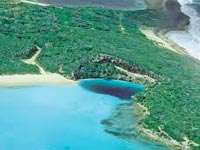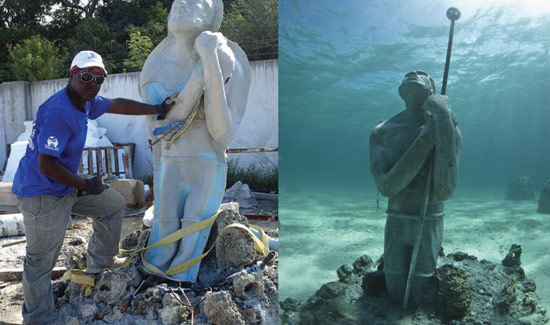Nassau, The Bahamas – Energy efficiency concerns have cash strapped Bahamians looking for ways to start saving money through conservation.
The new National Energy Policy is designed by local energy professionals to maintain energy in The Bahamas and make it affordable for Bahamians.
Results were recorded and published in a bi-series National Energy Policy report.
“It is the Government’s vision to achieve 30/30 by the year 2030.
In other words, the Bahamas will aim to reduce its energy consumption by 30 percent and have 30 percent of its energy met by renewable energy sources by the year 2030,” said Phenton Neymour, Minister of State for the Environment.
“By beginning with the implementation of a National programme that includes ‘Promoting Energy Efficiency in Residential Lighting’ and developing a disposal programme for Compact Florescent Lightbulbs, otherwise known as CFLs and the incandescent lights that have been replaced by CFLs.”
On April 9, distribution will begin in Elizabeth Estates, Windsor Park, Christie Park, A.F. Adderley Park, Pinewood Gardens Community Park, and Golden Gates Park.
The Royal Bahamas Defence Force will hand out the bulbs moving from street to street, knocking on doors and exchanging the lightbulbs.
Individuals are required to provide old incandescent lightbulbs in exchange for CFLs, free of charge.
Full distribution will begin on May 7 in New Providence as supplies last.
The programme includes a disposal programme for incandescent lights and CFLs.
The nationwide distribution of 270,000 CFLs, over the next two months, is one of the fundamental solutions to reduce energy dependency on fossil fuels and to promote conservation techniques.
By changing incandescent lightbulbs to CFLs, a household can reduce its energy costs and consumption by three times less.
“Last Thursday, I had the privilege of informing Bahamians of the Government’s decision to post the second report of a National Energy Policy Committee on the BEST Commission’s website,” said Mr. Neymour.
“The critical components of that report included applying Waste to Energy (WTE) technologies, promoting energy efficiency and conservation measures, reducing oil imports, lowering greenhouse gas emissions, and tapping available sources of alternate or renewable energy resources with existing mature renewable technologies.
“Before we can promote energy efficiency, we must first understand what it is. Simply put, energy efficiency is the efficient use of energy with the goal of using the amount of effort it takes to provide the same products and services.”
The Government decided to provide Bahamians that qualify, a head start in getting CFL lightbulbs reportedly able to last up to five years, which means they will still be in use up to two years, after the ban takes effect.
It means the Government must provide at least five lightbulbs to each Bahamian home.
To qualify you must prove an average consumption of less than 600 Kilowatts per month over the last 12 months, so the programme targets low income homes.
“Much work was poured into developing this report. The committee was formulated with the view of having participation from the public sector, but from the private sector at no cost. So I encourage all to go on the BEST website and read the report,” said Mr. Neymour.
“Although we grasp and appreciate the significance of saving energy, there are many challenges to implementing renewable energy sources, which include the high initial start up costs to provide the renewable energy source, and changing the behaviour of customers.” The Ministry and the IDB partnered with many local Bahamian businesses to distribute free CFL bulbs to the Bahamian public.
Dissemination of constant information is anticipated to ensure Bahamians will not lose out on the programme’s energy saving opportunities.
“One of the greatest challenges I have recognidsed in promoting energy efficiency and lowering our energy costs is education,” said Mr. Neymour.
“Education is key. The press will call and want to know the price of gasoline at the pump. They want to know and talk about electricity bills, and the fuel surcharge, well, this programme is aimed at reducing some of those costs. Yet we have challenges in getting our message out.”
Recently, the price of crude oil closed at $107.94 per barrel.
High prices have been a result of political instability in radical Middle Eastern countries, situated with land in the cradle of mankind.
The area is rich in fossil fuels, which empower countries such as Libya, Iraq, and Iran to operate powerful oil cartels that suppress healthy competition and impact tension on world trading markets.
On April 4, the Ministry of the Environment held a ceremony to officially launch the “Promoting Energy Efficiency in Residential Lighting Programme” on the Western Esplanade Beachfront on West Bay Street.
The Ministry of the Environment, Bahamas Electricity Corporation (BEC) and the Inter-Development Bank (IDB) are leading change to expand energy efficient behaviours regionally.
Funding for the bulbs was provided for by a combination of an IDB grant and the Global Environment Facility (GEF). They started the giveaway with a gift to the Ranfurly Home for Children.
By Gena Gibbs
BAHAMAS INFORMATION SERVICES



